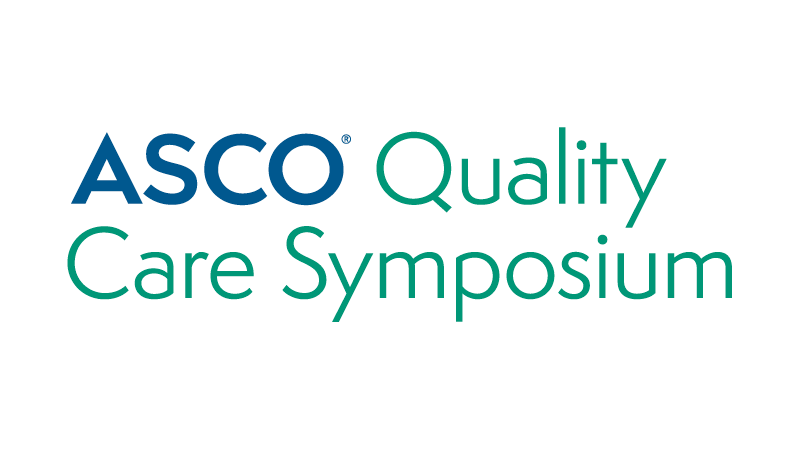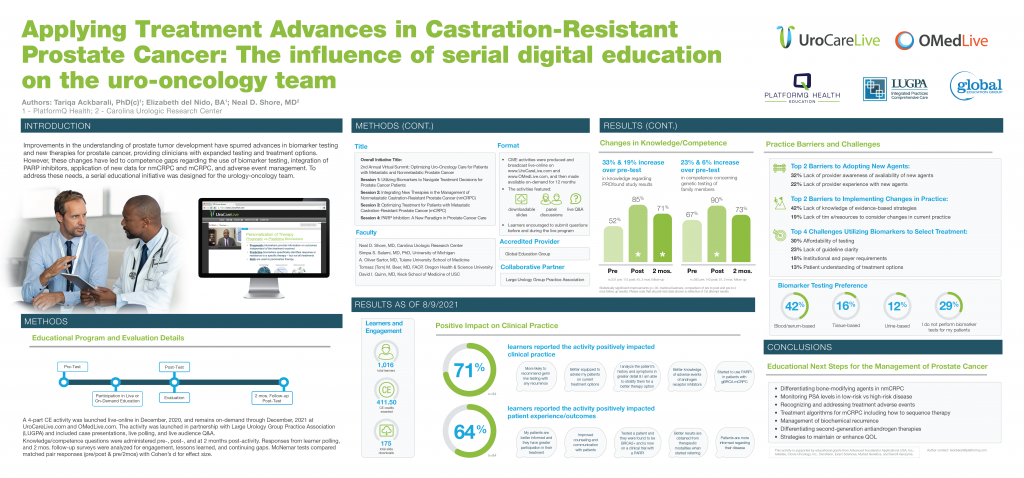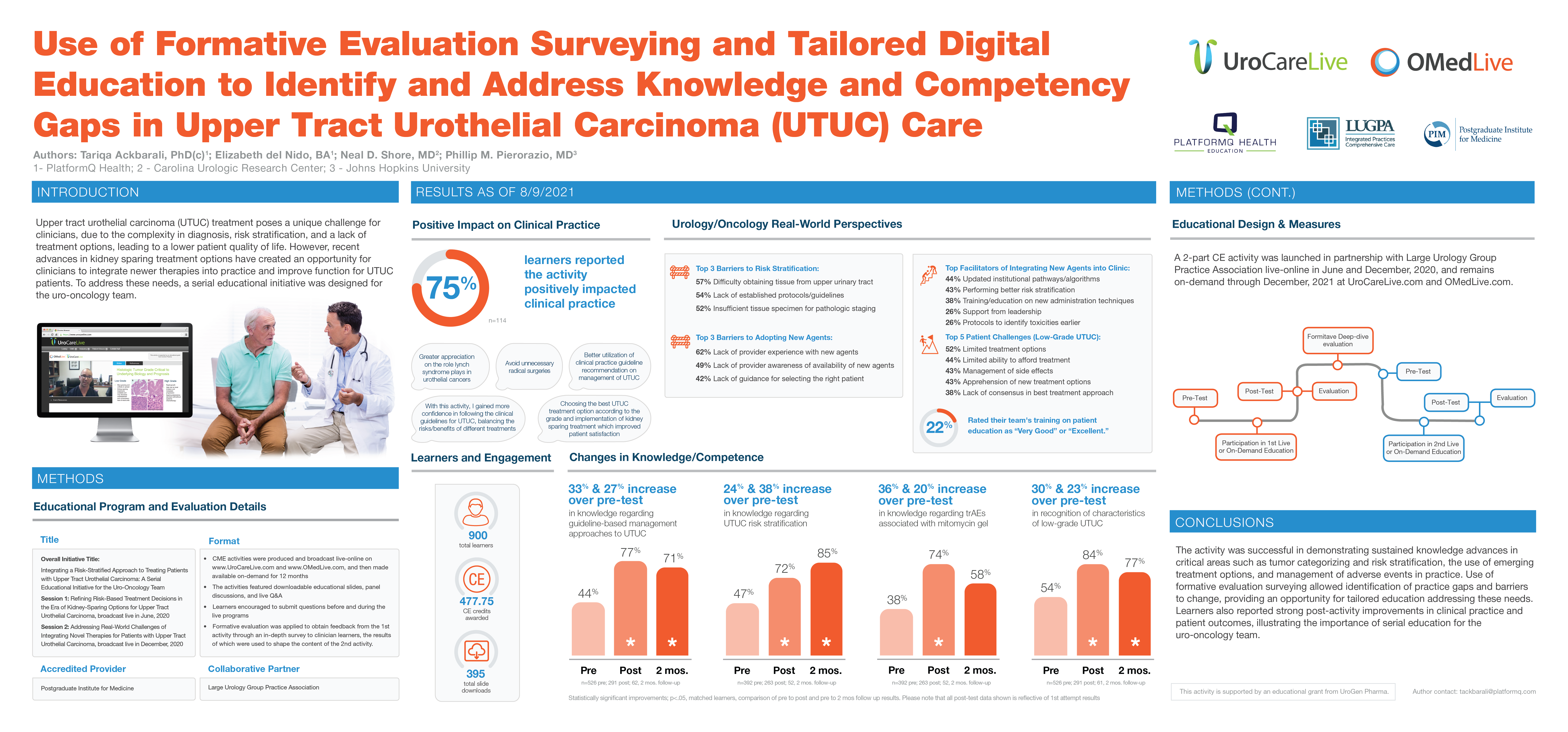Biomarker testing and new therapies are reshaping care of certain types of cancer. Yet many clinicians report a lack of awareness about and experience with such options. To address these barriers, Large Urology Group Practice Association (LUGPA) and PlatformQ Health collaborated in the creation of two serial education programs for uro-oncology teams – both of which resulted in significant improvements in the application of these personalized treatments.
The companies presented the education outcomes at the ASCO Quality Care Symposium on September 24, 2021.
Watch poster author, Tariqa Ackbarali, MS, PhD(c), Senior Medical Director, Patient Education, present the poster findings here.
In its four-part digital education “Advances in Castration-resistant Prostate Cancer” accredited by Global Education Group, an expert uro-oncology panel shared patient cases and conducted live Q&As. The sessions provided a deep dive into these timely topics, exploring:
- Utilizing biomarkers to navigate treatment decisions
- Integrating new therapies in the management of non-metastatic castration-resistant prostate cancer
- Optimizing treatment for patients with metastatic castration-resistant prostate cancer
- PARP inhibition: A new paradigm in prostate cancer care
More than 1,016 clinicians participated in the sessions. Program evaluations were conducted through pre-session testing, in-session polling, surveys immediately following the sessions as well as two months later. Prior to the sessions, learners reported that their two greatest practice barriers to adopting new agents were lack of awareness of availability of new agents (32% of respondents) and lack of experience with new agents (22% of respondents). Afterwards, 71% of learners reported the activity positively impacted clinical practice and 64% reported that it positively impacted patient experiences/outcomes.
——————————————————————————————————————————————————————————————————————-
In a second educational series, PlatformQ and LUGPA used formative evaluation surveying and tailored digital education to identify and address knowledge and competency gaps in upper tract urothelial carcinoma care (UTUC). Historically, UTUC presents a unique challenge for clinicians, due to the complexity of diagnosis, risk stratification, and lack of treatment options. To help with these challenges, the first session focused on refining risk-based treatment decisions in the era of kidney-sparing options.
Watch poster author, Tariqa Ackbarali, MS, PhD(c), Senior Medical Director, Patient Education, present the poster findings here.
After the first session, learners were surveyed to help gain insights into practice gaps and barriers to change. Notably, only 22% reported that their team’s patient education prior to the sessions was very good or excellent. Based on this and write-in comments, the second session was developed, focused on the real-world challenges of integrating novel therapies for patients with UTUC.
Accredited by the Postgraduate Institute for Medicine, the two-part series attracted 900_ learners, with 75% reporting that the activities positively impacted their clinical practice.
The activity was successful in demonstrating sustained knowledge advances in critical areas such as tumor categorizing and risk stratification, the use of emerging treatment options, and the management of adverse events in practice. These positive outcomes demonstrated the importance of serial education.
Have questions about the posters or want to learn more about how PlatformQ Health is delivering impactful education to HCPs and patients? Email us at digital@platformq.com



